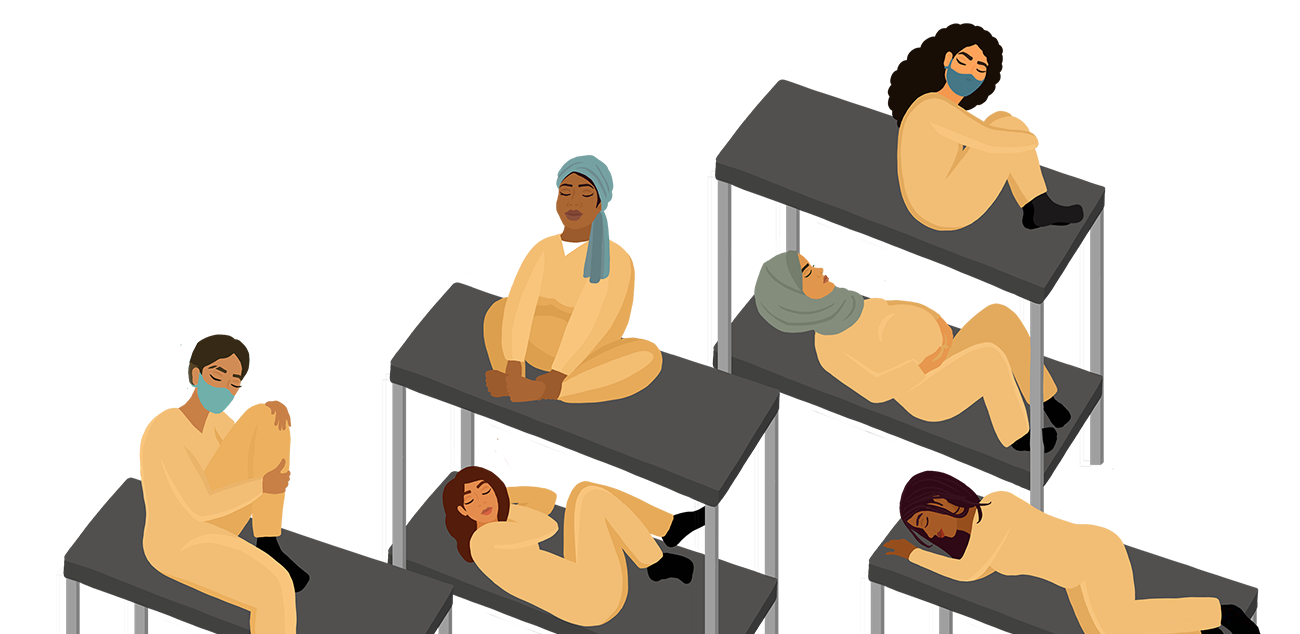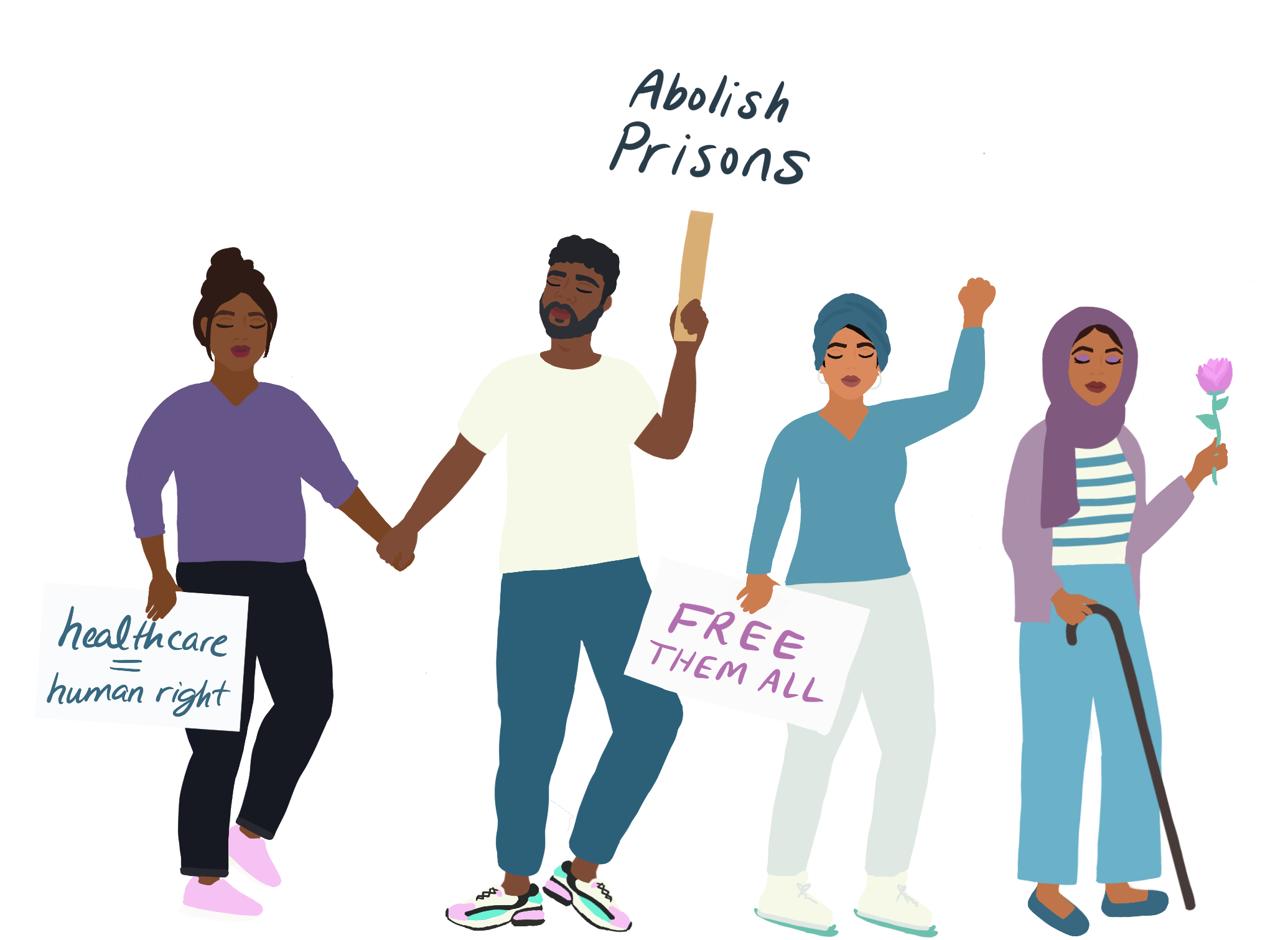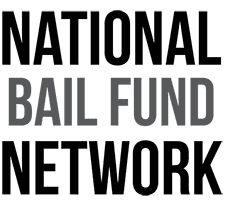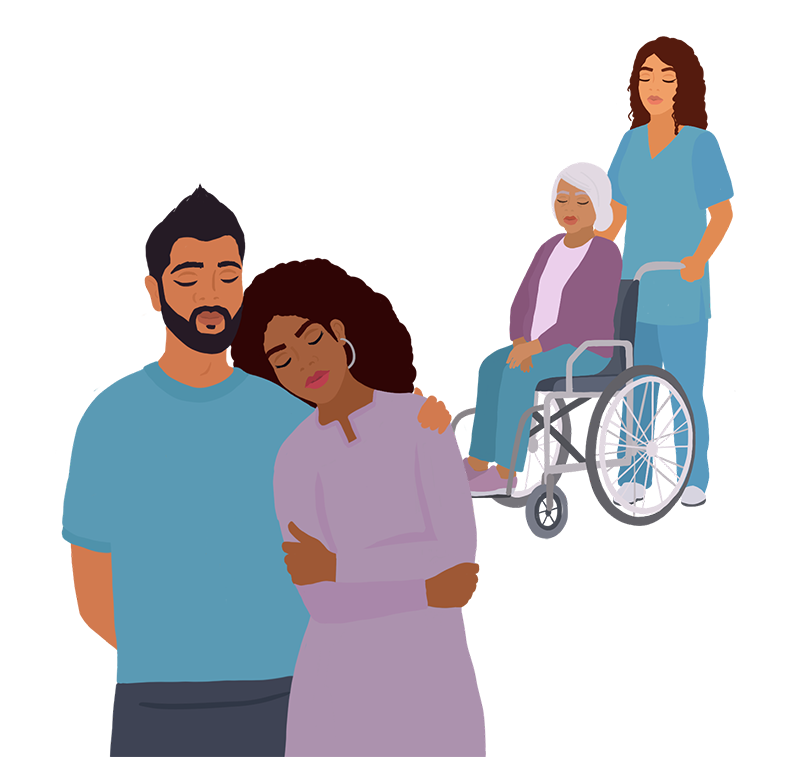Believers Bail Out (BBO) is a community-led effort to bail out Muslims in pretrial incarceration and ICE custody.
Who We Are
Believers Bail Out (BBO) is a community-led effort to bail out Muslims in pretrial incarceration and ICE custody. Based in Chicago, home to the largest single-site jail in the United States, Believers Bail Out supports efforts to abolish money bail and to raise awareness within Muslim communities on the injustices of the bail bond system, immigration bonds, and the broader prison-industrial complex of which they form part. Our aim is to move towards a world rooted in accountability and healing, rather than punitive responses of the police and prisons. We seek to create sustainable change in our society by focusing on three major areas of concern: the prison-industrial complex, anti-Muslim racism, and anti-Blackness.
Zakat for bail
Zakat, one of the central tenets of Islam, is an annual tax on wealth. The Qur’an (9:60) specifies eight uses for zakat, including helping the poor and the needy and for the freeing of slaves or captives. People being held in pretrial incarceration because they can’t afford bail qualify for zakat. By paying their bail and freeing them to address the charges against them, Believers Bail Out restores the presumption of innocence. It is in our capacity and our duty as Muslims to be a part of ending this unjust bail system that criminalizes poverty and is inherently racist in nature.
Zakat Eligibility
BBO follows the zakat eligibility and distribution processes outlined by the Tayba Foundation, which also serves incarcerated Muslims.
The use of zakat does not go towards the everyday operations of Believers Bail Out. Zakat monies are used for bond and related fees and post-release support. We firmly believe that based on our understandings of the modern American criminal punishment system that Muslims held in pre-trial and immigration incarceration are captive and held in bondage (fi al-riqab 9:60) and can thus be freed (fakku raqabatin 90:13). At the same time, all of our bailees also qualify for zakat based on their statuses as poor and in-need (al-fuqaraa wal masakin 9:60).
Our Criteria
BBO wants to #FreeThemAll, but we are currently unable to assist everyone who needs help paying bond. BBO, in coordination with partner community bonds funds and the National Bail Fund Network, uses various interactive factors to evaluate whether we will assist someone who applies for our help paying bond. One reason BBO focuses on Muslims in pretrial incarceration and immigration incarceration is that anti-Muslim racism exposes Muslims to increased risk of victimization and denial of religious freedom in the prison and immigration incarceration systems.
Our work focuses on three intersecting areas of concern
Our Process
All zakat funds are directed towards bond-related costs. This includes (but is not limited to) money bail and related fees, transportation (to and from court), correspondence (to facilitate bond payment), and post-release support (which includes housing, mental health/life coaching, food, and other essential needs). All BBO operating expenses are paid for through grants and non-zakat donations i.e. sadaqa/charity.
Families and advocates for incarcerated Muslims apply for support.
The case is reviewed. If the applicant meets criteria for zakat funds, BBO partners with one of our partner local bond funds to post bond.
BBO & partners will support and connect released individuals to community resources until the case is resolved.
Once the case is resolved, the funds will be returned to Believers Bail Out or to the local bond fund to bail out someone else behind bars.
Annual Reports
Download our annual reports below.





